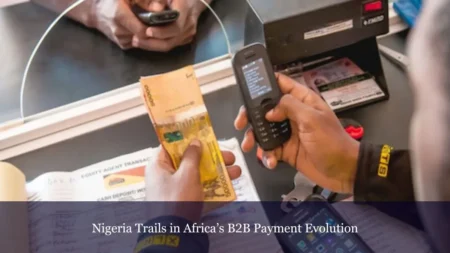- Wärtsilä Energy offers tips on how Africa can navigate energy transition and grid reliability
- Powering Africa: Africa’s Path to Universal Electricity Access
- Global investment trends at AIM Congress 2024: a spotlight on the keynote speakers
- South Africa’s deepening investment ties in South Sudan oil industry
- Agribusiness could drive Africa’s economic prosperity
- Dawood Al Shezawi: Why AIM Congress 2024 is the epicenter of global economic and cultural dialogues
- d.light’s 600,000 cookstoves project verified as top source of quality carbon credits
- Artificial intelligence (AI) could create a turning point for financial inclusion in Africa
Browsing: Africa’s fintech developments
- In February, reports claimed Ghanaian fintech Dash was providing false metrics on its user base and transaction volume.
- An audit showcased a significant shortfall of at least $25 million in the company’s accounts.
- Dash Fintech’s high operating expenses and monthly burn rate of $500,000 significantly contributed to its rapid fall from glory.
Africa’s fintech industry is among the fastest, and most lucrative economic activities. According to the African Development Bank, the industry will surpass its $3 billion mark in 2022. Despite its significant growth, the industry has struggled to maintain its progressive rate. The steady increase of the cross-border payment platform has flooded the franchise, ultimately, creating a negative effect on the industry. In recent news, Dash fintech, a Ghanaian fintech, shut down after raiding over $86.1 million in five years.
Unfortunately, this has been a rising trend in the industry. If not addressed, Africa’s fintech industry may fall behind …
- Nigeria received $1.2 billion in 2022 to fund and support fintech-based startups.
- South Africa led in electronic bank transfers, with 49.1% of respondents selecting their preferred payment methods.
- Kenya took the lead on the best payment automation stem, with 83.4% stating that their B2B payment systems were semi-automatic or fully automatic.
Within the past decade, the world economy has revolutionized into a more digital era. The technological progress of the continent is attributed to the rising technologies, ushering in the fourth industrial revolution. Among these emerging markets is Africa’s fastest and most lucrative economic activity; Fintech.
Africa’s fintech industry has grown exponentially over the past two decades. The endeavours of entrepreneurs and innovators have fueled a new approach to traditional financial systems. Essentially, it has ushered in a new B2B payment system that is reliable, scalable, available and faster.
This new trend met high enthusiasm from several countries within the …
London-based fintech company, Unlimit has announced its entry into the Kenyan market, expanding its presence in Africa’s fintech industry.
- Initially launched in 2009, Unlimit focuses on providing easy-to-use and efficient payment processing companies to all its users.
- According to McKinsey, blockchain, cryptocurrency, and decentralized technology are expected to redefine financial services within Africa completely.
- At the beginning of 2023, Disrupt Africa released a report stating that Africa’s fintech industry received $1.45 billion in funding for 2022.
Unlimit eyes Africa’s fintech industry potential
Within the past decade, Africa’s fintech industry has significantly improved in scale and potential. The rapid digital transformation of the continent has attracted numerous investors seeking to capitalize on potential markets and startups.
Unlimit is a London-based fintech organization that soon took wind of the numerous opportunities the country offers. Launched in 2009, Unlimit fintech focuses on providing easy-to-use and efficient payment processing services to all its users. …
DP World, a global leader in supply chain solutions, announced a partnership with Standard Bank to offer trade finance solutions. This partnership will act as the bridge between African businesses and the DP World Trade Finance to open new doors of opportunity for the continent.…
Over a couple of decades, cash and mobile app money transactions such as M-Pesa have dominated the financial space, but with its growth, there is a new collaboration with Fintechs set in place to capture the price-sensitive market with improved innovation and open-loop digital solutions in East Africa.
Financial technology (Fintech) is used to describe new technology that seeks to improve and automate the delivery and use of financial services. At its core, fintech is utilized to help companies, business owners, and consumers to better manage their financial operations, processes, and lives by utilizing specialized software and algorithms that are used on computers and, increasingly, smartphones.
The International President of Ukheshe Technologies Mark Dankworth, firmly believes that the region is poised for a surge in digital banking growth, with the likes of MCQR and virtual cards likely to make the biggest impact.
This follows the Kenyan retail-tech startup, Tanda which …









